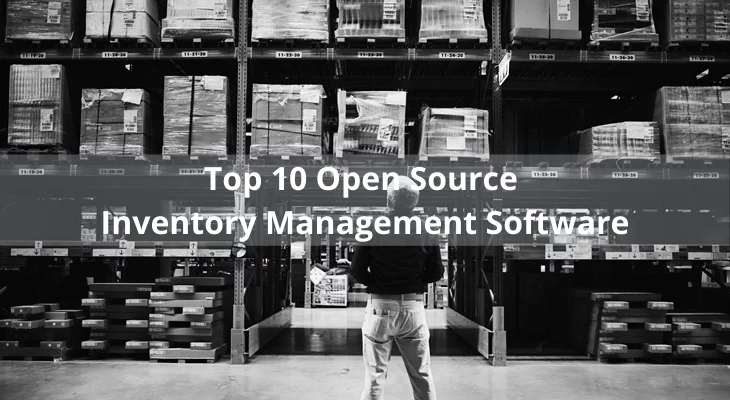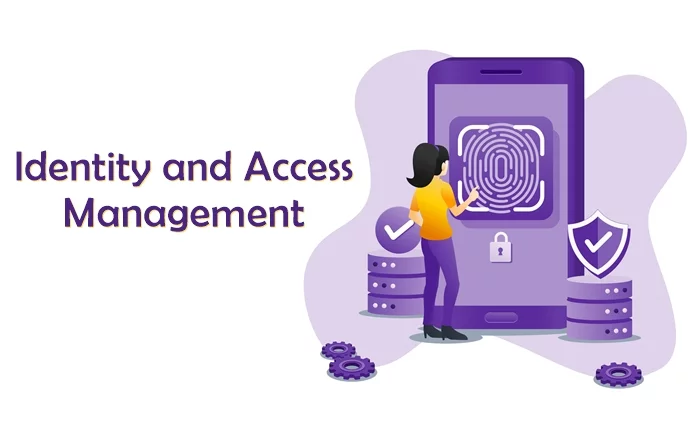Inventory management software can easily help you with managing your entire lot of goods or inventory. Through the course of this blog, we will try to figure out some of the best open source inventory management software, available in the market. If you are an owner of a supply chain management firm, then you better understand the situation where you have to manage a ton of products in your warehouse. It streamlines and centralizes your entire business process around it to just make sure that you will get the right amount of inventory at the right time, along with its right quality. These days most of the ERP (Enterprise Resource Planning) solutions provide an inventory management system as part of the entire package. In this next step, we’ll discuss some of the best open source inventory management software, which can make your supply chain operations easy.
Manage your Inventory with these 10 Open-Source Software
This software is sufficient enough to run your entire business process single-handedly, along with your inventory management.
This is an easy to install software in your business process. Just a few clicks and it’s ready to go.
Odoo is just not used for inventory management but also for ERP, CRM, accounting, and fleet management. This one package will take your enterprise to new heights.
Core Features:
- Odoo provides you with accounting features wherein you can keep all your records.
- It improves performance and process time.
- Odoo provides you with a smart double entry inventory system, which can also improve your internal operations.
- Fully automated replenishment is a feature you get with the free package. If you have lesser stock in your repository or if the certain item has gone stockout, you will get detailed information on the same on your fingertips.
- Along with this, you will get an automated system to generate a request for quotations.
- Odoo can take complete care of your warehouse management.
- Additionally, you will get features like drop shipping and cross-docking.
Here are some reviews from Odoo users:
Pros: Anyone can configure it and use it easily (user-friendly). Speed is not an issue. No need for data re-entry. Brilliant connectivity.
Cons: Customization of reports is not agile. Odoo's support service is a little slow. Memory space is also an issue.
RightControl Lite is simply designed but powerful open source inventory management software.
Where the above-mentioned software provides you features related to inventory management only, this additionally provides you with sales management and a comprehensive reporting system.
This way, you can analyze your overall business performance.
It is high value but a low-cost inventory management software for your business. If you own a small enterprise where you require inventory management software, then you should go with it.
Core Features:
- Tracks both inventory and sales.
- The interface is well organized, and anyone can easily understand it.
- You can create your own database for customers, suppliers, and distributors
- Users can also access this software from their mobile devices.
- RightControl Lite supports Windows OS.
Here are some reviews from RightControl Lite users:
Pros: Most of the functionality is free of cost. You just need to pay a little amount of money for the reporting feature.
Cons: You might receive some errors while uploading files, and you need an expert to install this software.
This software is considered to be the most beloved inventory management software in the market. inFlow Inventory is for all sizes of industries (small, medium, and large) and trusted by Volvo, Google, Chicago Bulls, AT&T, and many more.
It is easy to install software, and within a few clicks, it’s ready to go.
Moreover, it gives you features like the B2B portal, purchasing, receiving, integration, and sales management.
Core Features:
- Organize your products by uploading your full product list for mapping, with multi-level categories.
- For your reference, you can also install product images.
- You can locate, and sub locates your product.
- Make stock adjustments as per your needs.
- inFlow Inventory provides you transit status and shows your product availability.
- Gives you alerts at re-ordering points, and with one-click, you can generate PO (purchase order).
- Generate bills of materials and also tracks your assembly cost.
Here are some reviews from inFlow Inventory users:
Pros: Image upload and barcode scanning are the primary features. Saves tons of time and has friendly tech support.
Cons: You have to pay for the mobile app. Unable to handle multiple warehouse features.
ABC Inventory is a free software for small and midsized organizations. By installing this software, you will get an unlimited number of workstations and databases.
Core Features:
- You can track each step of your inventory management life cycle. This starts from the moment, you create a purchase order for your supplier to the moment of delivery to the customer.
- You can create multiple warehouses.
- You can choose currencies while updating the product list. Currency rates are auto-updated over the course of time.
- Configure your multiple workstations at one point.
- For screen sharing and downloading the report, you will require permission from admin or other authority groups.
- Restore your last action on the tool.
- Export your data in Microsoft Excel, Word, HTML, or text format.
- It comes with an inventory item master list.
- You will require barcode scanning at the loading and shipment of goods.
- It provides you full information regarding LIFO and FIFO.
Here are some reviews from ABC Inventory users:
Pros: Easy to use and easily integrates with other applications.
Cons: Might give inaccurate inventory counts sometimes. Its support is a bit slow and also documentation is a little monotonous.
Take your inventory management online by Stockpile, which is created by the Canvas app. It is the most useful inventory software, especially for small businesses.
This tool is highly efficient in automation, streamline operations, accurate forecasting, and, most importantly, for decreasing human errors.
Core Features:
- Helps to build customer management modules.
- Proficient in warehouse management, reporting, and analytics.
- Handle pricing for your supply chain management.
- Sends you an alert notification whenever it’s required.
Here are some reviews from Stockpile users:
Pros: Many features to explore within the application. For day-to-day operations, the accuracy of this application is unmatched.
Cons: Need to be a little bit more mature to handle the task at the enterprise level.
If you own a business at multiple locations with hundreds of users, then this app is sufficient to take care of your asset management. It is an open-source web-based warehouse and asset management software.
Snipe-IT gives you the ultimate leverage to assign an asset to other colleagues with a monitoring feature. Just one click and the entire history of your asset is in front of you.
This also shows you live asset performance, plus their live status like which asset is currently deploying from the warehouse or which one is ready to deploy.
Core Features:
- It shows your asset status in one click.
- While receiving a new asset, it will ask for a digital signature.
- Snipe-IT maintains a full history of an asset right from check-in to check-out.
- For easy mobile access, it generates QR code labels and you can easily integrate this system with most of the barcode scanners and QR code reader apps.
- You can import your list from the tool at any point.
- You can add your own custom fields, if necessary for additional asset attributes.
Here are some reviews from Spine-IT users:
Pros: Tracking label (QR Codes) generator is a useful feature. Highly configurable, easy to set up and update.
Cons: There are some bugs that could annoy you while working on the application. Spine-IT is a little tricky to operate in the beginning, as per some users.
If your internal program is built on java, then adopting OpenBoxes will be the right option for you because it is a cross-platform software package built with java.
This means it will work smoothly on any other Java supported application.
Core Features:
- In-built reporting tool, so you can analyze the overall performance.
- Custom attributes.
- Permission is required to access the tool.
- You can easily import the files to the tool.
- Manage and store metadata about each item like cost of goods or expenses, suppliers, manufacturers, substitutions, and category/classification.
- View your total asset quantity by bin location and IOT/Serial number.
- it gives you leverage to calculate your credits and debits.
Here are some reviews from OpenBoxes users:
Pros: Great at stock tracking and customization of features.
Cons: No, custom report feature at the moment.
Inventory Manager is an open-source inventory management tool which offers you invoicing and on-site inventory feature.
You can easily update stock information, purchase information, and view your sale at one place on your preferred devices.
Core Features:
- Proper supplier management information at one click.
- You can easily install this application on your devices like mobile and desktop.
- You can download reports with graphical and chart view.
- Inventory Manager takes control of damages during production or through the supply chain via damaged item management.
- Print barcode for products.
Here are some reviews from Inventory Manager’s users:
Pros: The point of sale module feature is really helpful.
Cons: All features are not free to use. Renewal of license will cost you money.
ERPNext is another open source inventory management software that could be best for any kind of business from small to large.
This system will allow you to provide many other modules along with inventory management. This could be a one-stop solution for your organization.
Core Features:
- This system is just not for manufacturing but also for retail, distribution, education, NGOs, agriculture, and healthcare.
- For inventory management, it gives you the in-built warehouse management system.
- ERPNext comes with leaves and attendance management system.
- You can also calculate your sales and manage your accounting books with tax calculation.
- It helps you to do future planning with a production planning tool.
- It supports multi-currency and automatic update currency rates.
- You can also check your employee time log entries.
Here are some reviews from ERPNext users:
Pros: Flexibility and extensibility of ERPNext are unrivaled. It helps with quick release cycles.
Cons: Little difficult to understand at the initial stage. If you own an anti-virus company, then it is not a suitable solution for you.
If you are looking for a system that can re-order the items in your stock list and always gives a clear overview of the product, then PartKeepr is the solution you should go for.
PartKeepr is one of the known open-source inventory management software. This software allows you to build as many inventories as you want with many manufacturers and distributor list.
Core features:
- PartKeepr allows you to search for stock level (increased or decreased over the period of time), order number for tracking, manufactures, and distributors details.
- It helps to maintain stock records. Suppose you want to make any addition or remove anything from your stock, it allows you to track these activities.
- The global stock history option will give you an overview of your stock management from the past.
- PartKeepr keeps usability as its first priority. It gives you an option of drag and drop so you can move your product data to any other category.
- It also gives an option of hiding fields, supposes you are looking for product entry, and the moment you open the Partkeepr, it will show you all fields, but as per your need, you can hide some unnecessary fields.
Here are some reviews from PartKeepr users:
Pros: The most valuable feature is global stock history. Easy to install, PartKeepr is designed to be used as a stock room inventory tool.
Cons: Too many fields to choose from, sometimes it’s hard to fix an itinerary to reach the final result.
Conclusion:
For supply chain and logistic firms, inventory management tools play a crucial role. Going through this entire blog, I’m hopeful you came across some useful choices to deal with your inventory management concerns.
Also Read:
What is fixed assets management? What are the benefits of it?
Top 8 Open Source Facial Recognition Software
Cloud ERP For Digital Transformation: How It Helps Companies Transform





